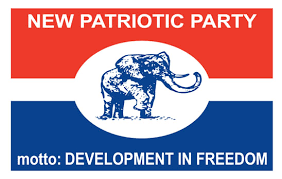After one year of the Nana Addo Dankwa Akufo Addo`s tenureship as the president of the Republic of Ghana, it is clearly evident that his New Patriotic Party administration has performed creditably well, despite some few lapses.
Various pragmatic, poverty alleviating and equitable policies were launched to put the country on the sound economic footing. These policies, for example the One District One Factory policy when properly implemented and monitored, it shall catapult this country towards its development agenda.
Unfortunately, the presidency was bedevilled with a lackluster information management. The government`s communications department was caught napping in the handling of certain unpopular decisions.
Information flow from the presidency, and the ministries were sometimes found to be unsatisfactory, myopic and not well-thought out at all. This has given ammunition to the opposition National Democratic Congress (NDC) and some neutral Ghanaian publics to question the merits and sincerity of some of these official information from the government. There seems to be the rush to respond to every allegation without waiting to deliberate on the appropriate communicated messages to the public.
The GH¢800,000 for website saga
Two important communication messages to the public deserve to be mentioned here. During the periods of heated public debates on the issue of the Ministry of Special Development Initiatives intended budget spending of whopping GH¢800,000 for the development of website, the sector Minister, Madam Hawa Koomson waited for a very long time before she emerged from her hide-out to explain that the amount captured in the budget was an error. Prior to the Minister`s explanation, the opposition NDC, the traditional media and the social network had opened serious criticism against the government. Many even went further to conclude that the intended GH¢800,000 for the creation of website makes both the NDC and NPP as the same political animals when it comes to their insatiable thirst for corruption.
Madam Koomson`s defence, which was later supported by the government through Mr. Mustapha Hamid, the Minister for Information was also greeted with the pinch of salt by the Ghanaian public. On both radios and social media, many die-hard NPP supporters refused to venture into the debate to give support to their beloved party. As one friend told me, “trying to defend this issue with the error explanation from the government makes one look like he supports the annoying GH¢800,000 payments for the website.”
The public refused to be swayed by the “error calculation explanation” because in the same budget was also an outrageous payments for dam construction, which was also vaguely explained in the budget. It was quite clear that the government was caught up in the communication delaying tactics and clear cut and convincing message. Most importantly, similar criticism over inflation of projects had been pushed by the NPP against the NDC, and the NDC had also deployed the “error in calculation explanation” to defend themselves.
“Cash for seats” allegation
The next example: the alleged payment of certain amount of money as a privilege to sit near the president, popularly known as “Cash for Seats” by the opposition NDC and the teeming media houses was also not properly handled. When the issue cropped up, the Deputy Minister for Trade and Industry (MOTI), Mr. Carlos Ahinkorah did not explain himself well in his media interview. He decided to go for a verbal jugular with the NDC Member of Parliament for North Tongu, Samuel Okudzeto-Ablakwa, when the two met on the radio news segment to discuss allegations. The opposition fuelled the issue to its apogee, claiming it is typical example of NPP`s corrupt tract record.
Thus, President Akufo Addo summoned Mr. Alan John Kwadwo Kyeremanten, the minister of MOTI to the Flagstaff House to brief him and take decision on it. The meeting and the outcome of non-culpability against anyone in the “cash for seats” corruption allegations angered the opposition NDC. For them, there was evidence of culpability and the president alone cannot suspend their suspicion of corruption in the whole matter. The explanation from the presidency was not accepted by the NDC.
It must be noted that the opposition shall always remain opposition, but what gave this allegation currency was the delay by the presidency in their response to the issue and the behaviour of Mr. Ahinkorah in explaining the issues. The clever use of ambassador Victor Gbeho by the NDC to sustain the “cash for seat” allegation was a clear example of the government`s communication failure. In fact, the issue would have died down if the deputy minister was to have allowed the Public Relations Officer of MOTI to explain the matter to the public. No wonder the opposition NDC was able to court public interest in the issue, leading to the Parliamentary probe into the “cash for seat” allegation.
Possible communications conundrums
The two examples cited above to prove the government`s lackluster attitude in handling their communications presents certain major strategic communication processes which can be dealt with. It is quite clear that the government has a slow attitude towards information gathering, interpretation and formulation of appropriate responses to deal/cure or explain bad publicity against it.
It also shows at the ministerial level and departments there is no synchronization on how to handle information against various ministries. The Ministry of Information seems to be non-proactive in gathering information and bad publicity against various ministries to work hand-in-hand to couch appropriate messages. Clearly, the situation also presents an educated guess that there is probably contestation between the Ministries PROs and the ministers of state as to who qualifies to speak for the ministry when issues affect it. Thus, one is not far from the truth to conclude that politicians always looking for media attention to brighten their media exposure have snatched the PR roles of their ministries from the professional civil servant PROs.
The Minister of Information also seems to be slow in stamping his authority to the other ministerial colleagues. As an officer in charge of information gathering, interpretation and couching of solid messages for the government, has done a lousy job in keeping his media-happy ministerial colleagues in order. This could be seen in the catatonic alacrity with which both Madam Hawa Koomson and Carlos Ahinkorah rushed to speak to the media, long before the Minister of Information emerged from its Adabraka bunker to offer his last-minute explanation and clarification of issues.
This year, possible problems noted earlier should be dealt with completely to avert the citizen’s attention from concentration on the bad publicity to sterling desire to seek information on the pragmatic, and equitably socio-economic projects and policies of the government. This government has done so much over the last year and it is important that the government`s communications machinery makes it a priority to couch messages to reinforce these projects and policies in the minds of the populace.
Changing the communication style for 2018
Effective communication powerhouse is a sine qua non for good leadership. It is to inspire confidence, make-believe, trust and understanding from the people. No one trust a leadership who is low to give answers and explanations to burning issues or a leadership whose explanations and messages are always subject of ambiguities.
For a recipient of a message is not tabula rasa who receives message and accept it straightforward without engaging in mental processes of decoding and assigning interpretations to the message to make a reasonable deduction.
Thus in offering adequate and proactive information to the populace, the NPP government must get its communications processes and modules right. Answers must be found to solve questions such as “how do leaders communicate? Do they communicate more by what they say, or what they do? Are their communication strategies unique? Are they moral beings, or impostors?
The first move is for the government to select well-qualified and experience researchers and communications personnel with serious background in the media, psychology and history to the various ministries to help in the gathering of information, interpretations and couching of information.
I am aware of the Minister of Information`s drive to recruit more communications personnel this year for the various Ministries, Departments and Agencies (MDAs) in the country. My request is that more focus should be in selection of candidates who are research oriented with backgrounds in communications, psychology, media and history. So as the historians and researchers gather information on a subject matter, the psychologists will look the tenor of the writings of the media personnel whilst the communications specialists handle the aspect of the public speech.
This is very important, because the leader (Minister and his deputy or department heads and their PROs) should be seen as trustworthy and confidence in how they communicate. Their messages should synchronize with their policies and conduct in office. This is because leaders are dynamic agents who mobilize, arouse, engage and satisfy the public. This presupposes that selection of particular person to speak on the subject matter is very important, the selected speaker must exhibit his inter-connectedness with the public, because speechmakers only exist because people listen, hear and watch.
It is only when the government had trained and selected amongst its galaxy of speakers from the MDAs are able to establish their inter-connectedness with the listeners and speak on selected issues; that a communicated message can go a long way to diffuse misconceptions. A typical recent example of how a speaker can dazzle his bloodthirsty opponents to cool down and win his respect through effective communication by words and conduct, was the Alan Kyeremanten`s appearance before the Parliamentary Committee set up to probe the allegation of payments for seat to those who sat behind the President in the Diasporan Homecoming Awards organized by Mr. Ashim Morton in conjunction with the MOTI. Alan held his interrogators spellbound and sober throughout the session.
This shows that when communicated messages resonate with people they let off their guards and get glued to the speaker and his message. This confirms that assertion in political communication: “A leader has to resonate with followers. Part of being an effective leader is having excellent ideas, or a clear sense of direction, a sense of mission. But such ideas or vision are useless unless the would-be leader can communicate them and get them accepted by followers.”
This is the rule that in our part of the world, a party after winning power refuse to follow. As it is argued, people are the policies of the government, and as Michael Wolff the author of the 2018 bestselling book, Fire and Fury, pointed out to all governments “Your people are your policies.” It is therefore important that strategic planning goes into who speak on most government issues. Not everyone who stood in the campaign platform and had been appointed into any of the headship of offices of the MDAs are qualified to speak for their MDAs.
Some people are only worth for opposition communication and useless as communicators for the ruling government. Government appointees to the state organization such as National Health Insurance Authority (NHIA), Free Zones Board (FZB), COCOBOD, National Youth Authority (NYA) and others must stay away from active partisan political discussions so as to engender confidence in what they say about the organizations they head.
The NDC`s Kwadwo Twum-Boafo, who then was the boss of the FZB lost his credibility when he spent almost all his active time on radio to engage in politicking instead of working at his office.
The government must also be active and strategic in how they disseminate information and quell information.
Last year`s government`s communications was more of reactive or ambulance chasing communications. The government was always attacked or accused, and it spends time to react and defend issues. This year must be the best!!!

